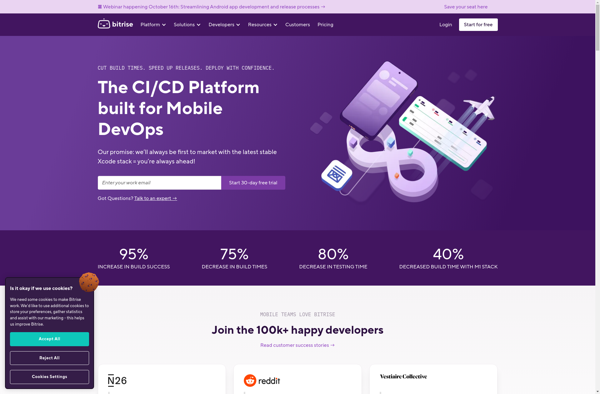Description: Travis CI is a hosted continuous integration service used to build, test, and deploy software projects hosted at GitHub. It is free for open source projects.
Type: Open Source Test Automation Framework
Founded: 2011
Primary Use: Mobile app testing automation
Supported Platforms: iOS, Android, Windows
Description: Bitrise is a continuous integration and delivery platform optimized for mobile app development. It allows automating the building, testing and deployment of mobile apps with support for native iOS, Android, React Native, Flutter, Ionic and more.
Type: Cloud-based Test Automation Platform
Founded: 2015
Primary Use: Web, mobile, and API testing
Supported Platforms: Web, iOS, Android, API

